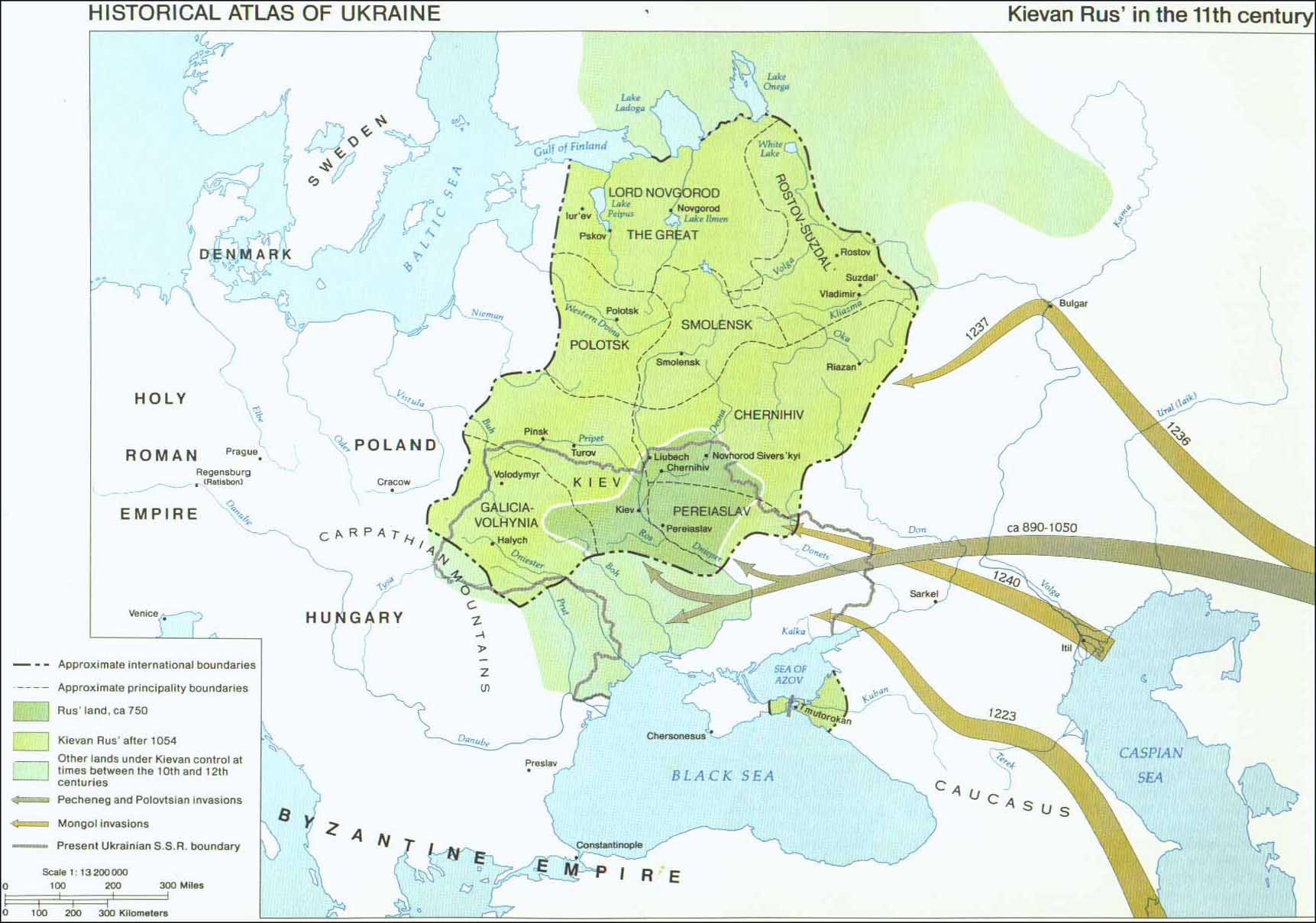Hi, all. Studying Russian history, so this comes as a central topic and an important period of Russian history, constitutes the shaping of what we know today.
I would appreciate very much any supplemental information on this topic, which I find highly interesting, and which I therefore seek to memorize to the fullest extent.
So I'm going to lay out some options.
What was the cause of the fall of Kievan Russia?
1.) Disrupted trade routes, growing appearance of Mediterranean merchants, and a subsequent isolation of Kiev.
2.) The princely political system, the resulting internal disputes and strife which made Kiev crumble from within.
3.) Undermining weaknesses, namely social, e.g., due to the enserfment of peasents and a worsening position of the urban poor.
4.) Foreign aggression, and to a vast degree. foreign pressure. Kiev faced numerous enemies, at times multiple enemies on multiple fronts, which demanded a lot of resources. Wars were fought on scales and involving distances, not comparable to the usual European medieval campaigns.
__________________________________________________
Which one is the most plausible? And will it eventually be a complex intertwinement of the above listed and possibly other causes, that led to the downfall of the Kievan State and the first most important chapter of Russian history?
There's an epic Russian tale about the destruction of Russia. It's about the bogatyrs, epic heroes - the warriors of Kievan. The warriors fight so hard they chop their opponents in two, but every time, the halves would become whole again, and an ever-increasing number of enemies would press so hard they would finally overwhelm the Russians.
A little off-topic, perhaps. By knowing the Russian history, you understand all too well Russian suspicions against the West, also surfacing as we speak. History "justifies" present behavioral patterns.

Vasnetsov's Bogatyrs, "The Epic Heroes"
I would appreciate very much any supplemental information on this topic, which I find highly interesting, and which I therefore seek to memorize to the fullest extent.
So I'm going to lay out some options.
What was the cause of the fall of Kievan Russia?
1.) Disrupted trade routes, growing appearance of Mediterranean merchants, and a subsequent isolation of Kiev.
2.) The princely political system, the resulting internal disputes and strife which made Kiev crumble from within.
3.) Undermining weaknesses, namely social, e.g., due to the enserfment of peasents and a worsening position of the urban poor.
4.) Foreign aggression, and to a vast degree. foreign pressure. Kiev faced numerous enemies, at times multiple enemies on multiple fronts, which demanded a lot of resources. Wars were fought on scales and involving distances, not comparable to the usual European medieval campaigns.
__________________________________________________
Which one is the most plausible? And will it eventually be a complex intertwinement of the above listed and possibly other causes, that led to the downfall of the Kievan State and the first most important chapter of Russian history?
There's an epic Russian tale about the destruction of Russia. It's about the bogatyrs, epic heroes - the warriors of Kievan. The warriors fight so hard they chop their opponents in two, but every time, the halves would become whole again, and an ever-increasing number of enemies would press so hard they would finally overwhelm the Russians.
A little off-topic, perhaps. By knowing the Russian history, you understand all too well Russian suspicions against the West, also surfacing as we speak. History "justifies" present behavioral patterns.

Vasnetsov's Bogatyrs, "The Epic Heroes"






